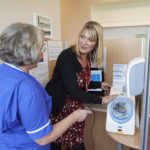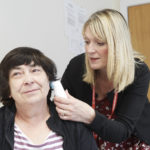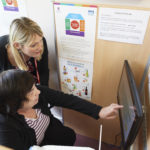Kirsteen Coady
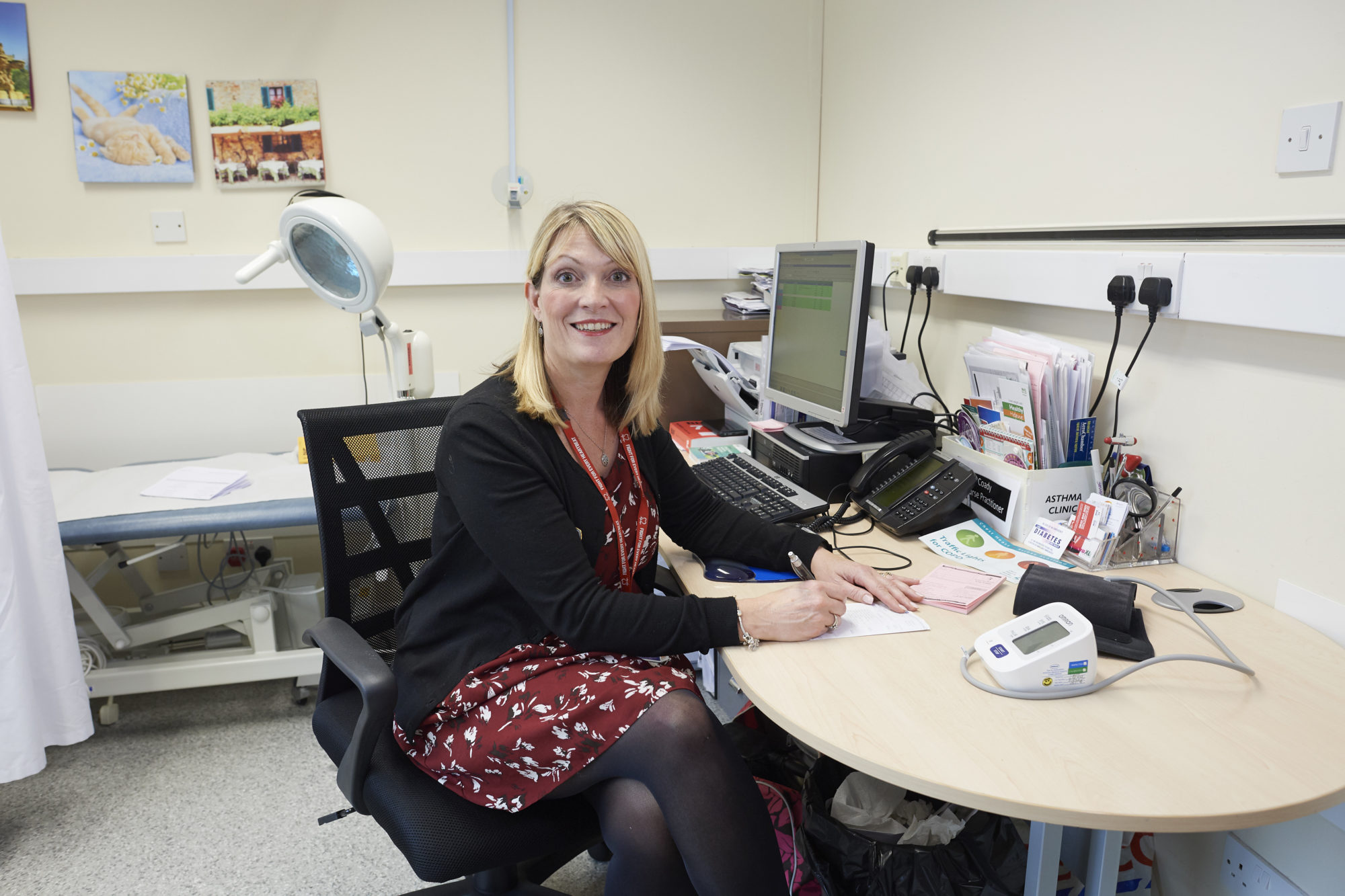 Kirsteen Coady is committed to constant professional development and was one of the first Advanced Nurse Practitioners in her area. She brings a boundless enthusiasm to her role at Macduff Medical Practice in developing services to improve the wellbeing of patients.
Kirsteen Coady is committed to constant professional development and was one of the first Advanced Nurse Practitioners in her area. She brings a boundless enthusiasm to her role at Macduff Medical Practice in developing services to improve the wellbeing of patients.
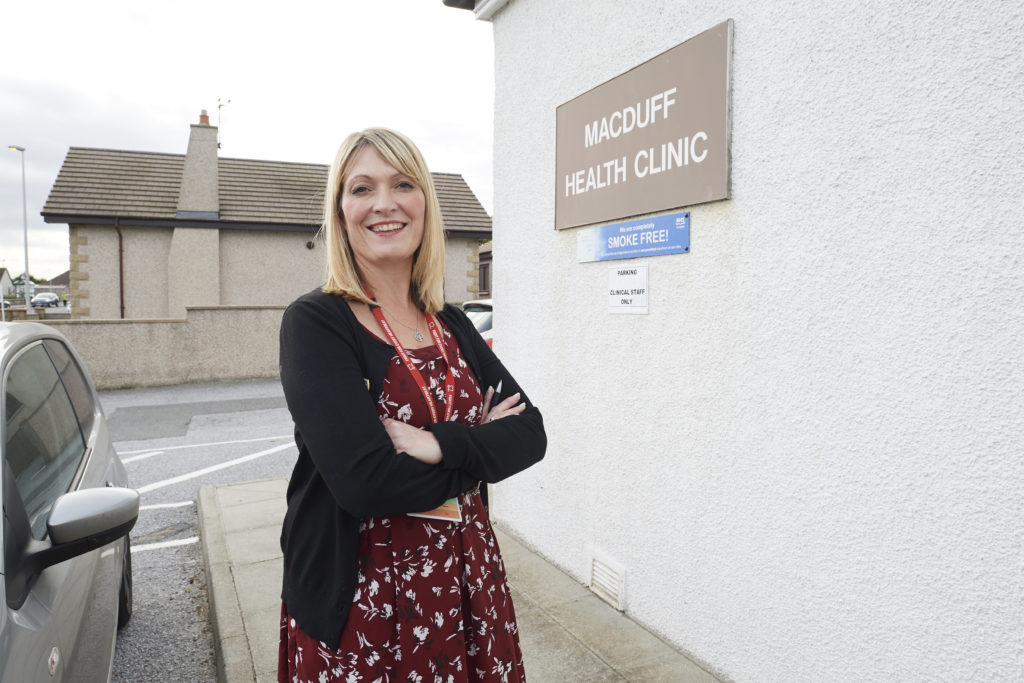
There was an old lady who lived at the corner of my street when I was a little girl, I used to pop in and see her and make sure she was okay. That always sticks in my mind when I think back as it probably showed that I wanted to work in a caring profession from quite a young age. It was always there, I think.
I went straight to nurse training after leaving school and my first job was as a theatre nurse. I took a short time out to have my children then moved into a community-based job in a nursing home. Through that, I heard of a general practice looking for staff for holiday relief and that was my foot in the door. The permanent practice nurse job then came up at Macduff Medical Practice and I’ve been there since 1999. However, I have evolved in my post, upskilling all the time. Additional training included a BA in Community Nursing with specialist practice – as well as nurse prescribing and many diplomas related to long term conditions.
In 2008, I completed a BA in professional practice with Advanced Practice modules and gained the RCN-approved Nurse Practitioner award. This led to significant change within my own role and that of service provision. Ten years ago, ANPs were not common place in Grampian but the vision I held, with the support of my GP-colleague, was that the practice with an extended team would be more responsive to individuals’ needs.
I have always had a thirst for learning and not standing still. I am also an Educational Advisor and Supervisor within NHS Education for Scotland (NES) and that is something I really enjoy doing.
There are some pre-bookable appointments available, but the majority are on-the-day acute presentation, complementing the role of the GP.
I hold weekly meetings with the nurses and wider team and meet regularly with GPs.
I am the lead nurse for the general practice nursing team and have the lead within the multidisciplinary practice team for the management of long-term conditions. I oversee all the result-handling for diabetes, so do a lot of telephone follow-ups with patients in my daily work.
No two days are the same. It is a dynamic role with a lot of variability.
I do get a lot of job satisfaction in my role and that stems from the relationship with the people within the practice.
As the lead for people with long-term conditions, I am there as a catalyst to support people to self-manage and help keep them safe.
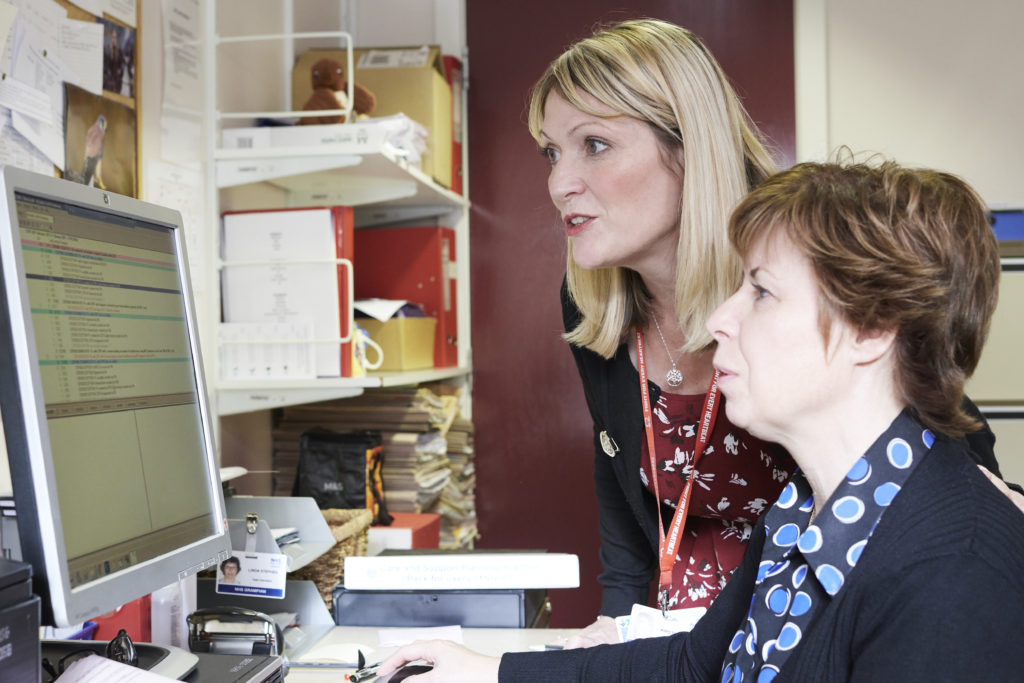 A rewarding service development which I led on, after completing the diabetes course, was to create a practice-based diabetes service. As our practice is remote and rural, this means that people don’t have to travel long distances to a hospital for their care. The model was successful and well evaluated after the first year. Comments such as: “I prefer coming to the practice as I feel I am known and care is more personal” really inspired me and I felt I had helped to make a difference in peoples’ lives.
A rewarding service development which I led on, after completing the diabetes course, was to create a practice-based diabetes service. As our practice is remote and rural, this means that people don’t have to travel long distances to a hospital for their care. The model was successful and well evaluated after the first year. Comments such as: “I prefer coming to the practice as I feel I am known and care is more personal” really inspired me and I felt I had helped to make a difference in peoples’ lives.
The purpose of the service I provide is to meet people’s needs in improving their wellbeing and supporting them to formulate their own goals and helping them to achieve them.
I like to think I’m playing a role in creating a more autonomous self-managing population which will go on generation after generation. It is important that individuals and families feel supported to take responsibility for their own health, and they never feel they are in a wilderness. We are here to support and help them to achieve their goals.
My project throughout the Queen’s Nurse programme has been to introduce a new model of care for people with long-term conditions called House of Care.
The person-centred approach has self-management at its heart and I was motivated to implement it as I identified House of Care as something that could meet the needs of our practice population which doubled in size to 6,000 patients following a merger just over two years ago.
The House of Care approach went live in August 2018. The aim was to redesign the current care model to ensure each individual within our practice is supported to live their life to the fullest, based on what really matters to them. The proactive approach to care supports people to stay well by focusing on individuals themselves rather than their specific disease.
- Kirsteen Coady, Queen’s Nurse Profile, Macduff Medical Practice.
Those with long- term conditions have an initial appointment in their birth-date month for tests including blood pressure and weight, and others depending on the condition. After receiving their test results through the post a week later, they attend a follow-up appointment with the nursing team to address any concerns and make plans for the future.
Patients tell me that they feel more involved with their care and achieve more from their planned appointments with the team.
The model will be evaluated formally after a year but the early days have shown it’s progressing well, with positive feedback from the team and patients. We have had comments that it’s created increased job satisfaction for the nurses – they really like the style of the consultation. They just feel that the person-centred approach can really get to the crux of the problem and what matters to people themselves. It’s very early days; but so far, so good.
